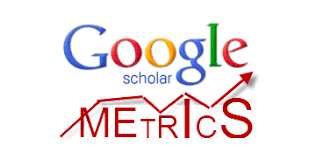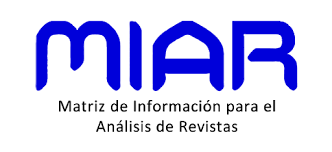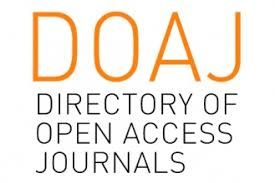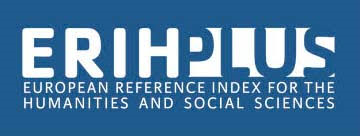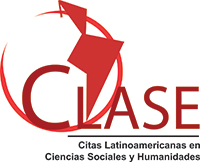Entre apostas e escolhas racionais
conjecturas sobre o desgaste do tempo sob intensa ação do acaso
DOI:
https://doi.org/10.15448/1984-6746.2023.1.44913Palavras-chave:
Peirce, Pragmatismo , dialogia semiótica, Azar, TempoResumo
A partir da exposição das diretrizes fundamentais da filosofia de Peirce, principalmente suas três categorias vistas sob sua Fenomenologia e sua correlata Ontologia, conjecturo sobre três possíveis dimensões do Tempo, considerando como principal papel de nossa humana racionalidade sua função de predizer com graus variados de certeza o curso futuro dos fatos. Nessas três dimensões incidem com intensidade diferenciada a primeira das três categorias peircianas, justamente a que inclui o modo de ser da incidência do Acaso, seja no curso de um Chronos natural, seja no curso de uma temporalidade produzida pelas ações humanas, ou seja também igualmente incidente na espontaneidade de um tempo subjetivo, assumido aqui como Kairós. Inspirada na recente experiência da pandemia que assolou todos os cantos de planeta, essa conjectura sugere dimensões de uma temporalidade ontologicamente esgarçada em graus distintos acarretando um correspondente esgarçamento de nossa racionalidade preditiva impondo-nos a condição de personagens a quem resta apostar sobre o curso da faticidade futura em detrimento de escolhas que seriam factíveis caso uma história circunstanciada por intenso Acaso não houvesse ocorrido.
Downloads
Referências
ANDERSON, Douglas Richard. Strands of system: the philosophy of Charles Peirce. West Lafayette: Purdue University Press, 1995.
ARISTOTLE. The Nicomachean ethics. Translated: David Ross and Edited by Lesley Brown. Oxford: Oxford University Press, 2009.
AYDIN, Ciano. On the significance of ideals: Charles S. Peirce and the good life. Transactions of the Charles S. Peirce Society, Bloomington, v. 45, n. 3, p. 422-443, 2009. Available at: https://doi.org/10.2979/tra.2009.45.3.422. Accessed on: Oct 31 2023. DOI: https://doi.org/10.2979/tra.2009.45.3.422
BARRENA, Sara; NUBIOLA, Jaime. Abduction: the logic of creativity. In: JAPPY, Tony (ed.). The Bloomsbury companion to contemporary Peircean semiotics. London: Bloomsbury Academic, 2019. p. 185-203. Available at: https://doi.org/10.5040/9781350076143.ch-006. Accessed on: Oct 31 2023. DOI: https://doi.org/10.5040/9781350076143.ch-006
COLAPIETRO, Vincent Michael. Peirce’s approach to the self a semiotic perspective on human subjectivity. New York: State University, 1989. (Suny Series in Philosophy).
FABBRICHESI, Rossella. The greek roots of pragmatism: a new word for an old way of thinking. Cognitio: Revista de Filosofia, São Paulo, v. 9, n. 2, p. 205-221, July/Dec. 2008. Available at: https://revistas.pucsp.br/index.php/cognitiofilosofia/article/view/12977. Accessed on: Nov 2 2023.
GUARDIANO, Nicholas. The intelligibility of Peirce’s Metaphysics of objective idealism. Cognitio: Revista de Filosofia, São Paulo, v. 12, n. 2, p. 187-204, July/ Dec. 2011. Available at: https://revistas.pucsp.br/index.php/cognitiofilosofia/article/view/11602. Accessed on: Nov 2 2023.
HAUSMAN, Carl R. Charles S. Peirce’s evolutionary philosophy. New York: Cambridge University Press, 1993. HOUSER, Nathan. The intelligible universe. In: ROMANINI, Vinicius; FERNÁNDEZ, Eliseo (ed.). Peirce and biosemiotics: a guess at the riddle of life. Dordrecht: Springer, 2014. p. 9-32. DOI: https://doi.org/10.1007/978-94-007-7732-3_2
IBRI, Ivo Assad. Kósmos Noetós: the metaphysical architecture of Charles S. Peirce. New York: Springer, 2017. (Philosophical Studies Series, v. 131). IBRI, Ivo Assad. On the bottomless lake of firstness: conjectures on the synthetic power of consciousness. Semiotica, Berlin, v. 2021, n. 243, p. 129-152, 2021. Available at: https://doi.org/10.1515/sem-2021-0120. Accessed on: Nov 2 2023. DOI: https://doi.org/10.1515/sem-2021-0120
IBRI, Ivo Assad. Semiotics and pragmatism: theoretical interfaces. New York: Springer, 2022. DOI: https://doi.org/10.1007/978-3-031-09625-9
INNIS, Robert Edward. Peirce’s categories and Langer’s aesthetics: on dividing the semiotic continuum. Cognitio: Revista de Filosofia, São Paulo, v. 14, n. 1, p. 35-50, Jan./June 2013. Available at: https://revistas.pucsp.br/index.php/cognitiofilosofia/article/view/16579. Accessed on: Nov 2 2023.
KRUSE, Felicia Ellen. Genuineness and degeneracy in Peirce’s categories. Transactions of the Charles S. Peirce Society, Bloomington, v. 27, n. 3, p. 267-298, Summer 1991. Available at: http://www.jstor.org/stable/40320332. Accessed on: Nov 2 2023.
LISZKA, James Jakób. An overview of Charles Peirce on ethics, esthetics and the normative sciences. Transactions of the Charles S. Peirce Society, Bloomington, v. 58, n. 3, p. 219-226, Summer 2022. Available at: https://doi.org/10.2979/trancharpeirsoc.58.3.03. Accessed on: Nov 2 2023. DOI: https://doi.org/10.2979/trancharpeirsoc.58.3.03
LISZKA, James Jakób. A General introduction to the semeiotic of Charles Sanders Peirce Indiana: Indiana University Press, 1996.
NÖTH, Winfried. Peirce’s legacy for contemporary consciousness studies, the emergence of consciousness from qualia, and its evanescence in habits. Semiotica, [S.l.], v. 2021, n. 243, p. 49-103, 2021. Available at: https://doi.org/10.1515/sem-2021-0117. Accessed on: Nov 2 2023. DOI: https://doi.org/10.1515/sem-2021-0117
NUBIOLA, Jaime. Understanding and teaching pragmatism: “by their fruits ye shall know”. Cognitio: Revista de Filosofia, São Paulo, v. 22, n. 1, p. 1-8, Jan./Dec. 2021. Available at: https://doi.org/10.23925/2316-5278.2021v22i1:e56724. Accessed on: Nov 2 2023. DOI: https://doi.org/10.23925/2316-5278.2021v22i1:e56724
PAPE, Helmut. Thinking and acting: the logical background of Peirce’s pragmatism. Cognitio: Revista de Filosofia, São Paulo, v. 10, n. 1, p. 91-104, Jan./June 2009. Available at: https://revistas.pucsp.br/index.php/cognitiofilosofia/article/view/13460. Accessed on: Nov 2 2023.
PEIRCE, Charles Sanders. The collected papers of Charles Sanders Peirce. Edited by Charles Hartshorne and Paul Weiss. Massachusetts: Harvard University Press, 1931. v. 1.
PEIRCE, Charles Sanders. The collected papers of Charles Sanders Peirce. Edited by Charles Hartshorne and Paul Weiss. Massachusetts: Harvard University Press, 1933. v. 4.
PEIRCE, Charles Sanders. The collected papers of Charles Sanders Peirce. Edited by Charles Hartshorne and Paul Weiss. Massachusetts: Harvard University Press, 1934. v. 5.
PEIRCE, Charles Sanders. The collected papers of Charles Sanders Peirce. Edited by Charles Hartshorne and Paul Weiss. Massachusetts: Harvard University Press, 1935. v. 6.
PEIRCE, Charles Sanders. The collected papers of Charles Sanders Peirce. Edited by Charles Hartshorne and Paul Weiss. Massachusetts: Harvard University Press, 1958. v. 7.
PIETARINEN, Ahti-Veikko. The place of logic in pragmatism. Cognitio: Revista de Filosofia, São Paulo, v. 9, n. 2, p. 247-260, July/Dec. 2008. Available at: https://revistas.pucsp.br/index.php/cognitiofilosofia/article/view/12982. Accessed on: Nov 2 2023.
SANTAELLA, Lucia. Pervasive semiosis. Transactions of the Charles S. Peirce Society, Bloomington, v. 45, n. 3, p. 261-272, 2009. Available at: https://doi.org/10.2979/tra.2009.45.3.261. Accessed on: Nov 2 2023. DOI: https://doi.org/10.2979/tra.2009.45.3.261
SANTAELLA, Lucia. The originality and relevance of Peirce’s concept of habit. Consensus on Peirce’s Concept of Habit. Studies in Applied Philosophy, [s. l.], v. 31, 153-170, 2016. DOI: https://doi.org/10.1007/978-3-319-45920-2_10. Accessed on: Nov 2 2023. DOI: https://doi.org/10.1007/978-3-319-45920-2_10
SCHMIDT, Jon Alan. Temporal synechism: a Peircean philosophy of time. Axiomathes, Dordrecht, v. 32, p. 233-269, 2022. Available at: https://doi.org/10.1007/s10516-020-09523-6. Accessed on: Nov 2 2023. DOI: https://doi.org/10.1007/s10516-020-09523-6
SFENDONI-MENTZOU, Demetra. C. S. Peirce and Aristotle on time. Cognitio: Revista de Filosofia, São Paulo, v.9, n. 2, p. 261-280, July/Dez. 2008. Available at: https://revistas.pucsp.br/index.php/cognitiofilosofia/article/view/13389. Accessed on: Nov 2 2023.
TIENNE, André De. The flow of time and the flow of signs: a basis for Peirce’s cosmosemiotics. The American Journal of Semiotics, Charlottesville, v. 31, n. 1/2, p. 29-53, 2015. Available at: https://doi.org/10.5840/ajs2015311/22. Accessed on: Oct 31 2023. DOI: https://doi.org/10.5840/ajs2015311/22
TOPA, Alessandro. “I have to confess I cannot read history so”: On the origins and development of Peirce’s philosophy of history. European Journal of Pragmatism and American Philosophy, v. 8, n. 2, p. 71-96, 2016. Available at: https://journals.openedition.org/ejpap/628. Accessed on: Nov 9 2023. DOI: https://doi.org/10.4000/ejpap.628
VANDENABEELE, Bart. Aesthetic disinterestedness in Kant and Schopenhauer. Estetika: The Central European Journal of Aesthetics, Czech Rep, v. 49, n. 1, p. 45-70. 2012. Available at: https://doi.org/10.33134/eeja.90. Accessed on: Nov 2 2023. DOI: https://doi.org/10.33134/eeja.90
VIOLA, Tullio. Peirce on the uses of History. Berlin: De Gruyter, 2020. DOI: https://doi.org/10.1515/9783110651560
Downloads
Publicado
Como Citar
Edição
Seção
Licença
Copyright (c) 2023 Veritas (Porto Alegre)

Este trabalho está licenciado sob uma licença Creative Commons Attribution 4.0 International License.
Direitos Autorais
A submissão de originais para a Revista Veritas implica na transferência, pelos autores, dos direitos de publicação. Os direitos autorais para os artigos publicados nesta revista são do autor, com direitos da revista sobre a primeira publicação. Os autores somente poderão utilizar os mesmos resultados em outras publicações indicando claramente a Revista Veritas como o meio da publicação original.
Licença Creative Commons
Exceto onde especificado diferentemente, aplicam-se à matéria publicada neste periódico os termos de uma licença Creative Commons Atribuição 4.0 Internacional, que permite o uso irrestrito, a distribuição e a reprodução em qualquer meio desde que a publicação original seja corretamente citada. Copyright: © 2006-2020 EDIPUCRS






